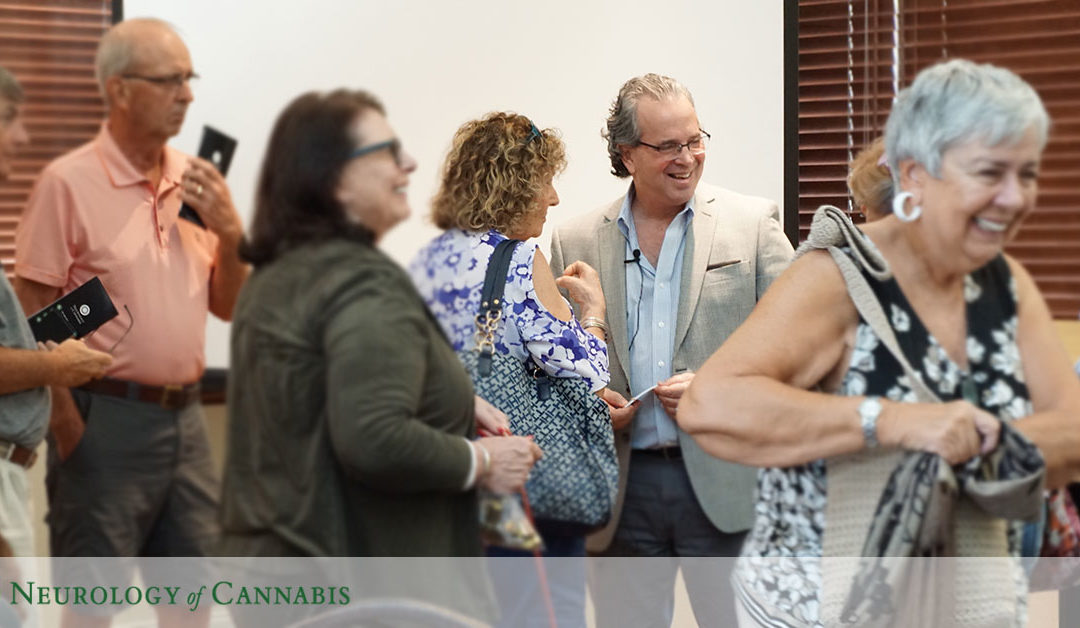For decades, you have been told that marijuana was a harmful drug. However, over the last decade, medical marijuana has been touted as a miracle treatment.
Which is true?
How Does Cannabis Interact with our Body?
Marijuana, also known as cannabis, is a complex plant. It can be ingested in many ways, exists in a wide variety of chemovars, and can instigate a broad range of reactions in different people. Therefore we thought it would be useful to explain how medical cannabis works with our bodies and why it should be considered a viable therapeutic alternative to pharmaceutical drugs.
An endocannabinoid system exists in your brain and throughout your body. Humans have receptors in virtually every major organ of the body. The system is fully functional in infants, and assists in the regulation of many of our most basic human processes. In short, the endocannabinoid system helps the body to achieve homeostasis, which is a state of balance between all systems. (including the digestive, circulatory, lymphatic, muscular, endocrine, reproductive, nervous, skeletal, and respiratory systems).
Cannabinoid receptors are the main component of the system. There are two primary cannabinoid receptors in the body: CB1 and CB2.
CB1 is found in greater abundance in the central nervous system (brain and spinal cord). These receptors are involved in regulating pain sensations, learning, memory, behavior, metabolism, nerve inflammation, appetite and motor function.
CB2 receptors exist primarily outside the nervous system; they are responsible for the regulation of the immune system, peripheral nerve function, bone health and gastrointestinal function to name a few.
Why Is Medical Cannabis Effective?
In scientific terms, cannabinoids from the cannabis plant look very much like the endogenous cannabinoids in our bodies. Therefore, the cannabinoids in cannabis are considered to be appropriate for use as a natural supplement to support, strengthen, and boost the endocannabinoid system.
When cannabinoids enter your bloodstream, they travel to your brain and throughout your body. After cannabis is consumed, the cannabinoids naturally attach to the CB1 and CB2 receptors, much like a specific key activates a particular lock. Depending on which receptor is activated, the effects on the host will differ. Here are a few examples of how cannabinoids can help with diverse conditions.
PTSD: Patients with post-traumatic stress disorder gain relief when using chemovars containing THC, which works similarly to anandamide. The substance assists the patient to overcome intrusive negative memories, while simultaneously improving mood.
Crohn’s disease or IBS: CB2 receptors exist in significant numbers in the gastrointestinal system. Therefore they play an essential role in regulating the inflammatory response associated with these two conditions.
Mental health treatment: Studies have revealed that in the laboratory, animal that are lacking in CB1 receptors exhibit “psychological abnormalities” such as stress and anxiety. CB1 receptors are essential for many functions including modulating anxious feelings, therefore underactivity at these receptors can be indicative of possible mental health issues.
Is Medical Cannabis the Right Solution?
An endocannabinoid deficiency can result in a range of maladies, from occasional mild bouts to chronic illness. The spectrum of symptoms that signal an endocannabinoid deficiency includes mood swings, insomnia, chronic pain and gastrointestinal problems.
Whether you agree with the usage of cannabis or not, there is no argument that a healthy endocannabinoid system is essential for the totality of health.
Cannabis is not the only way to strengthen your endocannabinoid system. Exercise, for instance, is known to release neurotransmitters that naturally boost the endocannabinoid system. However, when medication is warranted, utilizing a natural treatment that the body is designed to accept seems a more logical solution as opposed to manufactured pharmaceutical drugs.
Everyone’s endocannabinoid system is as unique as a fingerprint, and specific chemovars can affect individuals in different ways. That is why it is vital to consult with a medical professional who specializes in medical cannabis treatments.

